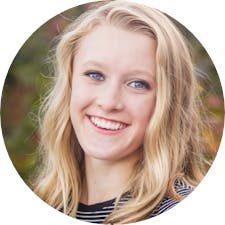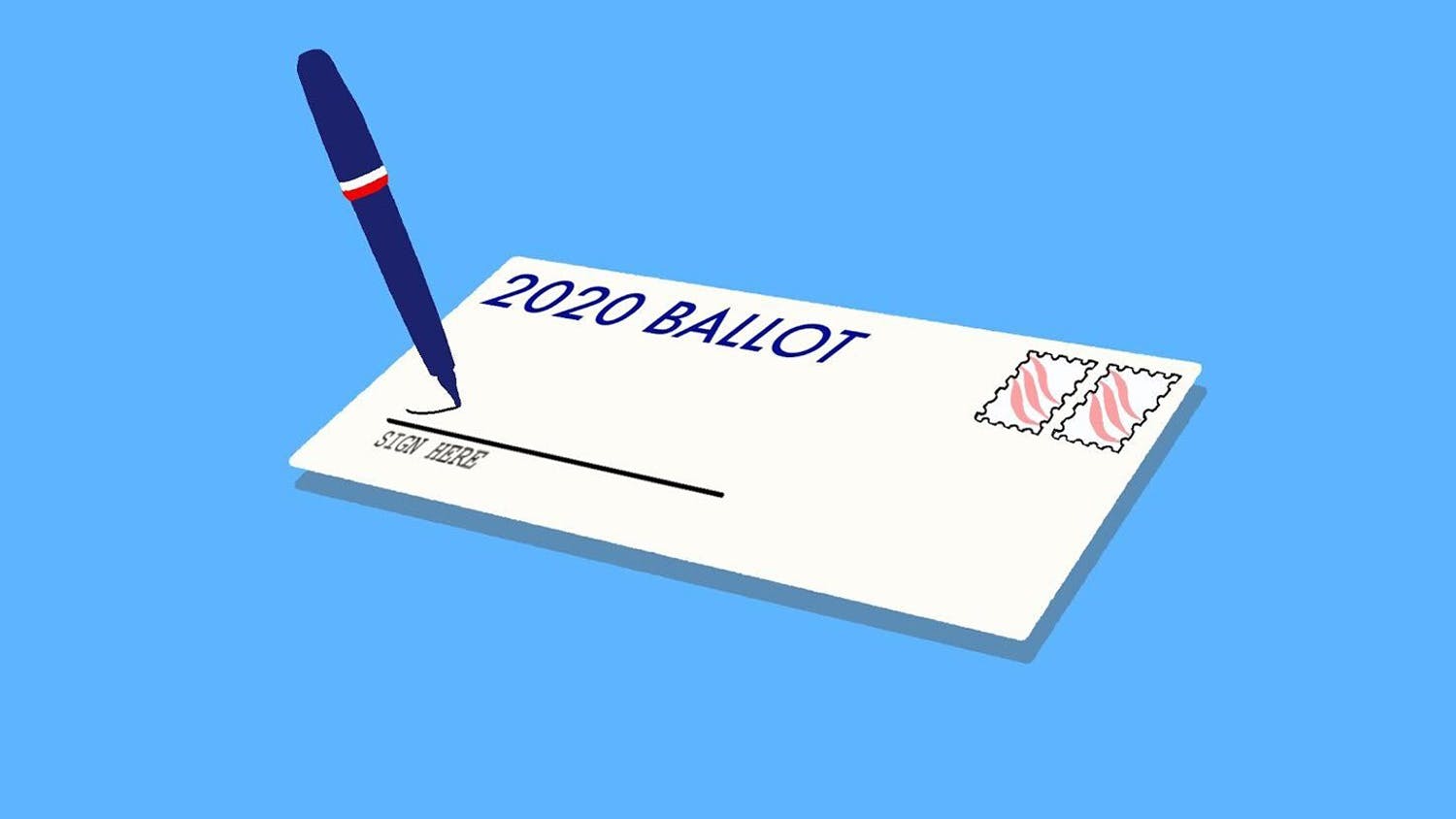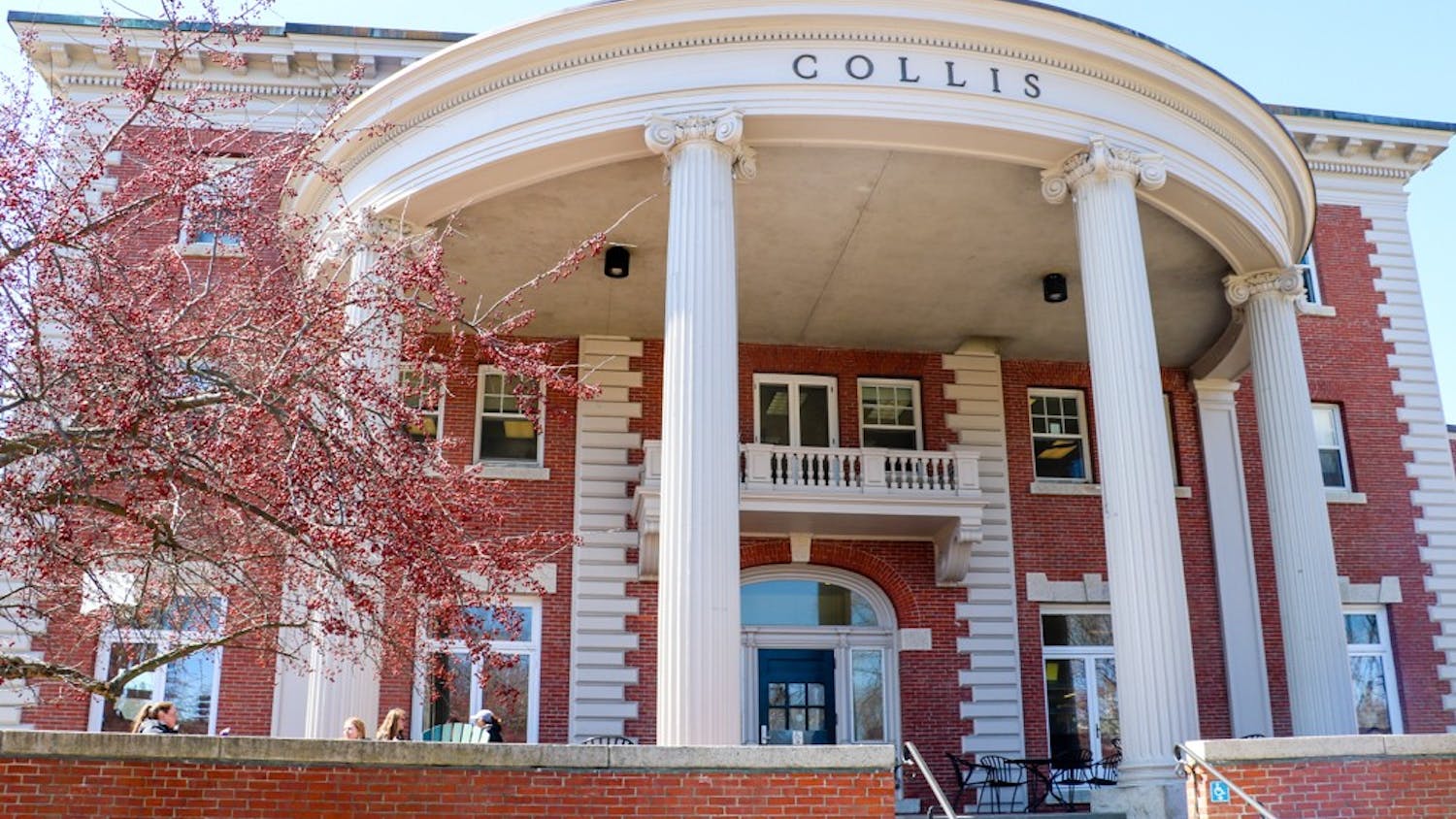It’s fall in Hanover, and that can only mean one thing. No, not another Gile hike, foliage picture or apple picking trip — it’s election season. While November inches closer, political activity crescendos on campus for Dartmouth students, many of whom are registered to vote in New Hampshire. In the month leading up to Election Day, student political organizations start working overtime to canvas for their preferred candidates.
At least, that’s how election season looks in a typical year. This year, though, is far from normal, and student groups have had to find ways to maintain political engagement in an era of social distancing.
The College Democrats and the College Republicans are staples during a typical election season. Whether it’s tabling in Novack or encouraging people to register to vote outside of Foco, the presence of College Democrats in particular feels nearly inescapable in the leadup to the first Tuesday of November.
However, with COVID-19 scattering the student body across the country and limiting in-person interaction on campus, political groups have had to find new strategies to reach students.
Emery Rheam ’22, president of College Democrats, acknowledged that while it was relatively easy to transition internal club meetings to the virtual sphere, it proved harder to create virtual equivalents of tabling and canvassing.
“There’s a lot more relational organizing,” Rheam said. “Rather than going out and trying to talk to strangers, it’s a lot of talking to your friends and talking to your own community.”
While this shift allows members to build on relationships they already have in place, Rheam expressed some concerns about the shortfalls of this method.
“You still worry that you’re missing large swaths of people that you would normally encounter in a tabling or canvassing situation,” she said.
Charles Schneider ’22, president of College Republicans, said his organization has faced similar issues.
“We prefer to be on the ground for campaigns, walking door-to-door and actually helping the candidates themselves setting up for events,” Schneider said. He added that “in the era of COVID, you have to adjust.”
For the College Republicans, this adjustment has meant more involvement in phone banking this year than in years past. The group plans to make calls in support of candidates in the days leading up to the election.
The College Democrats have shifted their focus toward providing resources to students online, and they have found success encouraging people to make plans to vote. While Rheam says the group has found it easier to distribute information through virtual platforms and social media, she added that it can be more challenging to encourage follow-through on the other end.
“The biggest challenge is you can send someone a link, but it’s a lot easier to get someone to really talk to you when they’re in person,” Rheam said. “It doesn’t happen as naturally [online], but it’s still possible, and there has been a lot of success with online platforms.”
Both Rheam and Schneider said that their groups have continued to host events with candidates, albeit virtually. For example, the College Democrats hosted a virtual conversation with Democratic New Hampshire congresswoman Annie Kuster last week. Despite the lack of in-person interaction, both leaders agreed that the high-profile nature of the presidential election has contributed to a high level of engagement among club members.
Schneider also noted that with many students not on campus this term, members have been able to get involved with campaigns in their home states.
“You have the opportunity to have a widespread group of people as opposed to [being] consolidated in New Hampshire. We’ve had the opportunity to have our members involved in a lot of really important races all over the country,” Schneider said.
Other student groups have also sought to increase political engagement on campus this term, focusing on overall engagement rather than promoting any one party or candidate.
While Student Assembly is normally involved in “get out the vote” efforts, this term has required additional preparation. For example, School House senator Jennifer Qian ’22 noted that SA cannot organize bus rides to the polls as it has in the past and must rely more on virtual channels to educate students. According to Qian, the SA voting committee — on which she serves — is working to make sure students have access to educational materials about the election so they know how to submit their ballots, whether absentee or in-person.
SA is also reaching out to students living on campus, many of whom are members of the Class of 2024 and will be voting for the first time in the upcoming election.
“We’ve partnered with the town to have four registration events in October at Hitchcock Tent. It’s a nonpartisan effort to make sure that students get registered,” Qian said.
The Dartmouth Student-Athlete Advisory Committee also launched a challenge over social media to encourage as many student-athletes as possible to engage in the election.
The challenge encourages student-athletes at Dartmouth to register to vote, pledge to vote and then nominate three teammates or friends to do the same via an Instagram story. Taurus Samuels ’22, a member of the men’s basketball team and co-chair of programming and athlete outreach for SAAC, spearheaded the student-led initiative.
“As student-athletes we have a platform, and we want to use our platform to the best of our ability. One way we can do that is not only get registered and pledge to vote but nominate other people to vote,” Samuels said.
SAAC has seen success with registering teams to vote. Sixteen of the College’s 29 varsity athletic teams had achieved 100% eligible voter registration by the completion of the challenge on Oct. 9. Samuels said that teams are continuing to register beyond that date, and at least 18 teams have now completed registration.
This election season does look different. Amid juggling midterms, navigating new COVID-19 guidelines and attempting to stay social while social distancing, politics might seem like the last thing on students’ minds. Given the importance of the current presidential election, however, Samuels thinks that Dartmouth students may be engaged in politics now more than ever.
"This election has opened up a lot of people’s eyes,” Samuels said. “This election has helped people say, ‘I want to get out and vote. I want to help create a change because I want to see a change.’”





